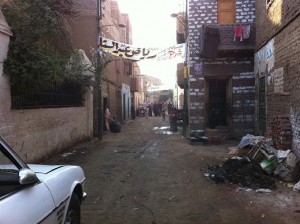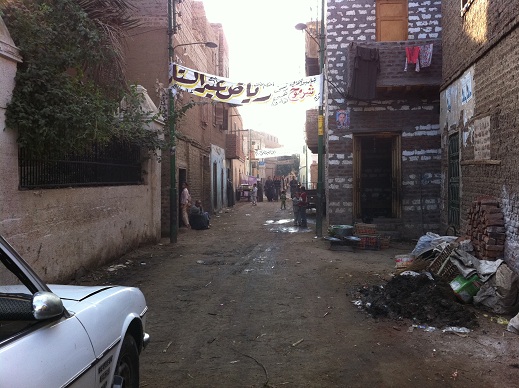
Security forces have been deployed to the Upper Egyptian city of Deir Mawas in an effort to curtail sectarian tensions which continue to rise following clashes between Coptic and Muslim factions. The developments followed of clashes on Sunday which left local crime bossAli Abu Hussein and is his brother dead after he attempted to kidnap a woman from the Christian “Marzouk” family in Nazlet Abdel Massih, located in the Minya governorate.
Researcher at the Egyptian Institute for Personal Rights (EIPR) Ishak Ibrahim said the Christian family responded when Abu Hussein attempted to kidnap a woman in the village named Hayam Zaki. The Christian family attacked Abu Hussein and a group of his men, leaving Ibrahim Marzouk and his son Ephraim dead.
Ibrahim said Interior Ministry officials had been notified by those in the area of Abu Hussein’s presence, and that they had failed to act on the reports submitted. The Marzouk family has filed complaints against security director of Minya and the head of the governorate’s investigation department for failing to take a preventative steps to maintain security.
Following Abu Hussein’s death on Sunday, a number of local Salafis protested the killing of the Muslim at the hands of Christians outside Mallawi General Hospital, where he was being held.
The Interior Ministry has stationed additional security outside the hospital and in Deir Mawas out of fear that violence and tensions could escalate.
Abu Hussein, from the village of Al-Badraman, was a “common thief” with a criminal record, according to residents of the area. However, the security vacuum created after 25 January 2011 in the area of Mallawi enabled him to expand his operations and recruit members to his gang. His group, which reportedly numbered between 40 and 50, occupied abandoned houses in the area. Abu Hussein’s status rose to notorious levels, as he and his followers reportedly extorted land and other property from local residents.
Locals point to the rise of weapons coming from Libya and a dramatic decrease in security presence for reasons that Abu Hussein had managed to carry on his campaign against them.
Sources in Mallawi told Daily News Egypt that despite reports indicating a sectarian aspect to Abu Hussein’s crime patterns, the crime boss extorted property from both Christian and Muslim Upper Egyptians.



